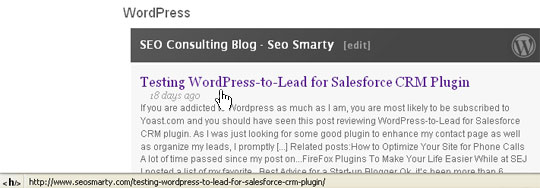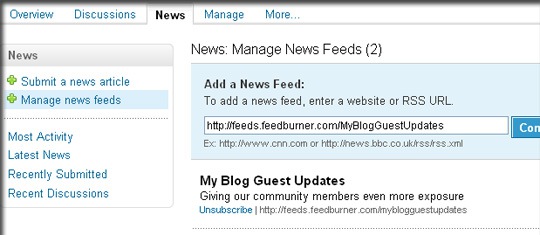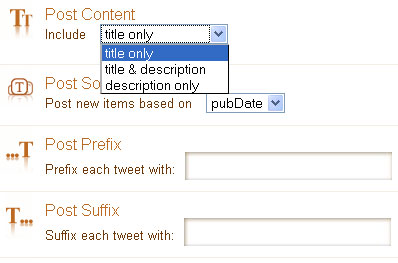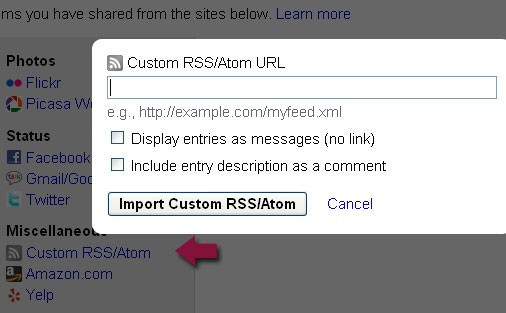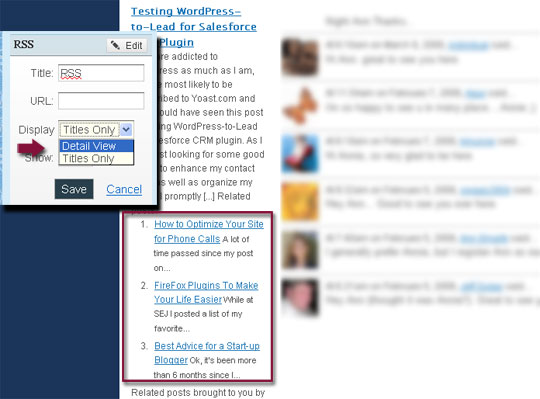Search engines to submit to
http://en.wikipedia.org/wiki/List_of_search_engines
Facebook Adverts - Dos and Don'ts
Read this story at the link found here..
http://www.allfacebook.com/facebook-advertising-marketer-2009-07
Webtips - Wikipedia posts
January 19, 2012 @ 07:20 AM
Wikipedia can greatly affect your website's relevancy with links.
Visit the Wikipedia link here to learn on posting and Citation with their tutorial...
http://en.wikipedia.org/wiki/Wikipedia:Tutorial/Citing_sources
Webtips - Adding the Like Widget to
your site.. Edit
Post
May 03, 2012 @ 02:29 AM
Adding the Like Widget to your site..
Here is a good site with information
on adding a widget to your page
Webtips - How to Check Backlinks to Your Website
Checking backlinks (the
sites that link back to your website) is a good way to see how many websites,
and what kind of websites are linking back to yours. This helps you develop
linking campaigns, and increase the page ranking of your website. Checking
these backlinks is a very simple process, and there are several ways to do it.
The easiest way is to log on to the king of search engines, Google.
For more information visit:
Video of how to create a Wikipedia Article..
Video to show how to create a Wikipedia Article.
http://en.wikipedia.org/wiki/File:How_to_create_a_Wikipedia_article_-_Right_to_science_and_culture.ogv
Webtools - MetaTag Analyzer
March 22, 2012 @ 06:56 AM
Go to this site to get metaTag Analysis. Very
good and helpful site for your meta tags.
Webtips: Google Places - USE IT!
March 08, 2012 @ 08:16 AM
Get found on Google for free
97% of consumers search for local businesses online. Be there when they're
looking for you with Google Places for business - a
free local platform
from Google.
Help your business stand out
Add photos, videos, and offers to show customers why they'll want to choose
you. Highlight special promotions, post live updates, and respond to reviews
from your Places for business account.
Discover insights about your business
Learn more about your customers: What keywords they’re searching for and
where they’re coming from. Armed with this knowledge, you can make better
business decisions.
https://accounts.google.com/ServiceLogin?service=lbc&passive=1209600&continue=http://www.google.com/local/add/verify?storeid%3D5833441083210930516%26mode%3Dexisting%26hl%3Den-US%26gl%3DUS&followup=http://www.google.com/local/add/verify?storeid%3D5833441083210930516%26mode%3Dexisting%26hl%3Den-US%26gl%3DUS&hl=en-US
Webmaster Tools
March 07, 2012 @ 08:37 AM
List of Great Webmaster Tools
World Wide Web Consortium
February 24, 2012 @ 02:28 AM
Check out
this site if you are a webmaster...
PHP information for webdesigners
February 23, 2012 @ 02:28 AM
Information for webdesigners on PHP
Is Email Marketing right for you and your
business?
February 21, 2012 @ 02:28 AM
Mail Chimp:
Once a website is up and
running, it is time to start driving traffic towards it. This can be done
in a number of ways, but e-mailing campaigns are tried and true. The only
question most people have is: how do they start an e-mailing campaign?
Well, there are many ways in which one can get e-mail addresses, but those
addresses will probably need to be handed over to a custom service that focuses
on e-mail marketing. MailChimp is just such
a service, but are they right one?
Visit their site at:
http://www.mailchimp.com/
Sites to check out: Internet Archive
February 19, 2012 @ 02:28 AM
The Internet Archive, a 501(c)(3) non-profit, is
building a digital library of Internet sites and other cultural artifacts in
digital form. Like a paper library, we provide free access to researchers,
historians, scholars, and the general public.
Web Aps: AddThis for Mozilla
February 15, 2012 @ 02:29 AM
AddThis Ap for Mozilla for Webmasters. The
application makes adding a site of yours, or others, to be spread across
multiple platforms with ease...
AddThis for Firefox is the best add-on
to make sharing and bookmarking simple. Have all your favorite web 2.0 social
networking, bookmarking, blogging, and e-mail services at your fingertips.
Share any page, anytime, with anyone.
Pop Under Advertising Information.
http://optmd.com/
Rank Checker
Ranking is important to any business! Google has changed the game, and
keywords must be relevant. Keyword rank checker tool to check your search
engine position ranking for any keyword in the major search engines and get an
advanced report including related keywords and spell check.
http://www.seocentro.com/tools/search-engines/keyword-position.html
Page Strength Frequently Asked
Questions
February 07, 2012 @ 03:37 AM
1. I ran a report for my site and it
contains missing or inaccurate data - what's the deal?
Page Strength scores are determined
by collecting data from external sources such as Yahoo, Alexa, and
Google. It collects this data tens of thousands of times a day -
these sources have limits to what they provide, so often times the data fails
to come through. SEOmoz is constantly working to try and improve the
accuracy of the data we report.
2. I have 23,345 links to my page but the tool is reporting 22,345, what's
the deal?
See #1
3. Why does the tool report I don't rank in the top 10 at Google for my
title tag when I really do?
See #1
4. Why isn't it reporting my "Age of Domain" accurately? I
registered my domain a long time ago.
Age of domain is determined via the Alexa "Wayback Machine" API.
Of all the sources we collect data from, Alexa has proved to be the most
unreliable (and it's the only one that costs money, go figure).
5. What do the factors mean?
- Links pointing to full URL - This is the number of links that are pointing to
your page. If you were viewing a report for
http://www.example.com/my-page, this would be the number of incoming links
to that exact URL. This factor is an indication of link strength to
your specific URL.
- Links pointing to domain - This is the number of links that are pointing to
your domain. If you were viewing a report for
http://www.example.com/my-page, this would be the number of incoming links
to www.example.com. This factor is an indication of link
strength across your entire domain.
- Position at Google for the first four words of title
tag - This is the position
in the search results for the first four words of the HTML title tag on
your page. For instance, the title tag of SEOmoz's home page is
"Read SEOmoz, Rank Better" and we rank #1 for that
term. This factor is a good indication of how well your
page is performing at the search engines for a term that is relatively
unique. If it's not ranking it may be possible that your site
is experiencing a penalty, spidering issue, or is new and has not
earned search engine "trust" yet. We chose the first 4
words because using the entire title tag was usually too unique and would
almost always report a site ranking in the top 10. Using less than 4
words from the title tag would was too broad and most sites would
typically be absent from the serps. After a bit of research, 4 words
seem to be the happy medium between the two that returned the most
accurate results.
- Age of Domain - This is a measurement of how long your
domain has been registered: the older the better. Older sites
are considered more trusted by the search engines and typically have an
easier time ranking for competitive terms.
- Links from domains with .edu TLDs - This is the number of links to your page that are
from .edu websites ( such as www.harvard.edu) . Search engines
consider these more valuable than traditional .com or .net links.
- Links from domains with .gov TLDs - Same as above
- Alexa Rank - In short: the lower your Alexa Rank, the better.
Alexa assigns a score to every website that is an indication of
popularity. It computes this score by analyzing the Web usage of
millions of Alexa Toolbar users. Although somewhat unreliable in
many sectors, the Alexa rank is the most reliable when comparing websites
is similar sectors. For example: comparing the Alexa rank of a
website about web design versus a site about kittens would not be an
accurate comparison. However, comparing the Alexa rank of a website
about web design versus a site about web programming would be.
- Domain name visibility - If your website is www.example.com, the domain name
visibility is the number of results that are returned at Google for a
search for "www.example.com." (in quotes). Adding the
quotes changes the search query to show pages across the web that have
mentioned www.example.com, without quotes it would simply return a list of
pages that Google has indexed from www.example.com. This is a good
measurement of how visible your domain is: are people talking about your
domain? Is it getting mentioned on forums, blogs, etc?
- Internal link percent
- This is the percent of pages on your domain that link to your target
URL. For instance, lets suppose your target URL was
www.example.com/my-page. The internal link percent would be the
percentage of links on www.example.com that point to
www.example.com/my-page. It is a way of measuring the importance of
a URL on a domain. If the URL you are fetching a Page Strength
report is for the homepage of your website the internal link percent is usually
100% because almost all pages link back to the homepage.
- Number of links according to Technorati - Technorati is a blog search engine, this is the
number of sites Technorati has found that are linking to your URL.
Although weighted more toward blogs, Technorati counts links much quicker
than Google and provides a better number of links initially than Google or
Yahoo.
- Number of search results for URL search at del.icio.us - del.icio.us is a social bookmarking site where users
collaboratively share websites. We use the number of people that
have bookmarked your URL as an indication of popularity.
- Listings in DMOZ (ODP)
- Although it definitely doesn't pass the value it once did, links from
DMOZ is still considered powerful.
- Links found in Wikipedia - Wikipedia links are valuable - this is the number of
links from Wikipedia to your target URL.
- Google PageRank of full URL and Domain - Although inaccurate and infrequently updated, Google
PageRank still offers some indication of the strength of a URL.
6. Will you be offering a Page Strength API?
We've received many emails on this subject and while we can certainly see
how useful this could be, for now we do not plan to open up an API. This
is due mainly to the technical nature of how the tool works: Page
Strength is an aggregation of other APIs and scraped data sources.
Providing an API to other APIs isn't a particularly efficient or scalable way
of providing Page Strength data.
7. If I become a premium
member, what new features do I get in Page Strength?
You can compare factors for multiple page strength reports on a single page in
tabular form. This is great for comparing the strength of several URLs at
once. Premium members also have the ability view page
strength history, where you can enter a URL and it'll show the Page Strength
scores of that URL over time.
8. I love Page Strength - How can I show my love?
In the right-hand sidebar of every Page Strength report there is some code
provided that you can add to your blog or website to display a badge with your
score.
